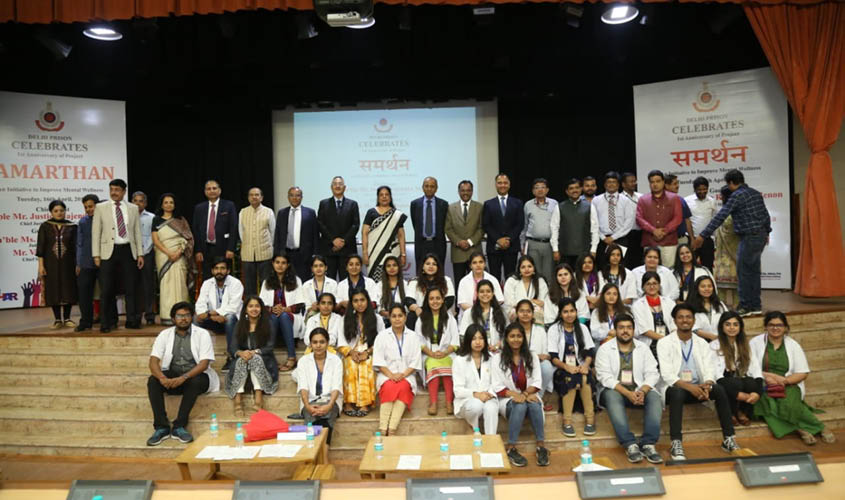New Delhi: As overcrowding becomes an issue for Indian jails, the judiciary needs to do more so that the judiciary is able to provide justice for inmates, especially those who are under trial and waiting for a fair judgment by the courts. This was the outcome at the mental wellness programme started by Tihar Jail, where its one-year anniversary was being celebrated.
Speaking at the anniversary of Samarthan—an initiative that was launched to improve prisoners’ mental wellness—Delhi High Court judge Justice Mukta Gupta, addressing the audience, said, “A prisoner had said this and I accept that one of the reasons for the failing and ailing mental health (in prisons) is the inaction by the judiciary. We have failed and we need to work on it.” Justice Gupta accepted that the judiciary has somehow failed inmates who are under trial.
According to reports, around 2.8 lakh inmates are being held in prison during their trials or awaiting trial, without having been convicted of a crime. While many have been anticipating trial for years, some have stayed in the prison for a longer period than their maximum formal sentence.
“Trials take time, appeals take time, but yes, a compassionate judge can always do something better than that. A person who has been in continuous custody for 6-7 years really needs help,” Justice Gupta added.
As inmates suffer shock and mental stress when they first come to jails, Tihar Prisons, in collaboration with an NGO, Mental Health Foundation, and the All India Institute of Medical Sciences (AIIMS), started the project, which provided inmates with Psychological First Aid and intensive counseling services. About 7,000 inmates have been given counseling and have been provided with proper attention in terms of mental health issues. Tihar has also seen a significant decrease in the number of suicide cases after the programme’s implementation. Speaking to The Sunday Guardian, Ajay Kashyap, Director General (DG) of Tihar jail, said, “The programme was implemented very efficiently and systematically inside the prison. A new inmate goes through a routine, where certain demographic and biographic details are entered. They are screened with the new tool so that it helps us identify those people who have severe mental stress.”
These cases are flagged for counseling by the counselors. When a new inmate comes, his or her profile is already ready and the counselor knows and interacts with the prisoner the minute they enter the prison.
Kashyap also added that though the judiciary process is slow, the courts “are making efforts to improve it”.
Tihar has over 16,000 inmates and is the most populated prison in the country, and while 80% of inmates are undertrials, only 20% are convicts inside the prison.
Speaking to The Sunday Guardian about the programme, Dr Nand Kumar, Professor of Psychiatry at AIIMS, who is also the mentor of Samarthan, said that for acute crisis, acute help is required.
He also said the manual, which was released on the occasion, caters towards different scenarios. “It is part of the training process on how to handle the bully, violent behaviour or the gang inside the jail. Our programme helps to detect any signs of depression or mental stress and give acute help to the inmate.”
Justice Gupta added that many factors contribute to mental illness. “Overcrowding, lack of privacy, lack of meaningful activities, forced solicitude, various forms of violence, insecure future prospects and inadequate health services lead to the mental illness,” she added.
The event was also attended by Chief Justice of Delhi High Court Justice Rajendra Menon who applauded the authorities for undertaking the programme and help inmates come out of depression and mental stress. The programme has stopped many inmates from committing suicide as they wait for their trial.

